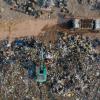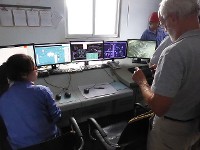
Pollution is becoming an increasingly significant development challenge causing currently about 16% of all deaths worldwide with the poor, marginalized, and young hardest hit by the health effects of the contamination.
 © M. Amann | IIASA
© M. Amann | IIASA
While responding to pollution is a challenge that is solvable in the near term to save lives and unlock economic opportunity, it requires solid capacity to design appropriate and effective action at the local, national, regional and global levels. In particular, effective response strategies have to involve multiple economic sectors, and appropriate governance mechanisms for regional cooperation, informed by solid science.
IIASA contributes its expertise on the science-policy interface on pollution management in Europe to the Pollution Management and Environmental Health (PMEH) program of the World Bank, focusing on selected urban areas in IIASA member countries (China, Egypt, India, South Africa, Vietnam).
Activities
In particular, AIR engages in
- adjusting and implementing its GAINS model at the Chinese Research Academy of Environmental Science (CRAES) of the China Ministry of Environmental Protection (MEP), as an official planning tool to support the Chinese government in air quality management in the Beijing-Tianjin-Hebei region;
- developing a new interface of its GAINS model for local planners without comprehensive academic background. This top-level interface enables rapid analyses of the cost-effectiveness and multiple benefits of specific pollution control measures, with a prototype implementation for the larger Hanoi region,
- designing the PMEH work plans and the development of local planning capacity for specific cities, including Hanoi, Cairo, Johannesburg, and Delhi,
- establishing science-policy infrastructures on air quality management planning in the PMEH countries.
